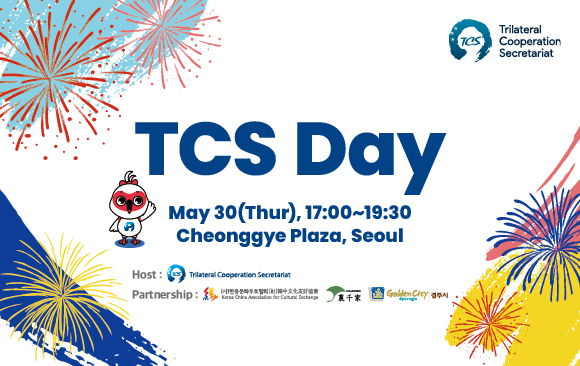TC Activities The Trilateral Journalist Exchange Program 2024
2024-03-16 ~ 2024-03-19
The Trilateral Cooperation Secretariat (TCS) hosted the Trilateral Journalist Exchange Program 2024 (TJEP 2024) from March 16 to 19, 2024 in Seoul, the Republic of Korea (ROK), under the theme of “25th Anniversary of Trilateral Cooperation: The Role of Media for Enhancing Mutual Perception.” 18 journalists from China, Japan and the ROK joined the program.
In the Opening session, TCS Secretary-General LEE Hee-sup delivered the remarks, introducing the history of TJEP, which was initiated by TCS in 2014 to enhance CJK journalists’ understandings of the three neighboring countries and to foster trilateral media cooperation. Since then, about 100 journalists from the three countries have participated in this program, and it is now one of TCS’s flagship events.
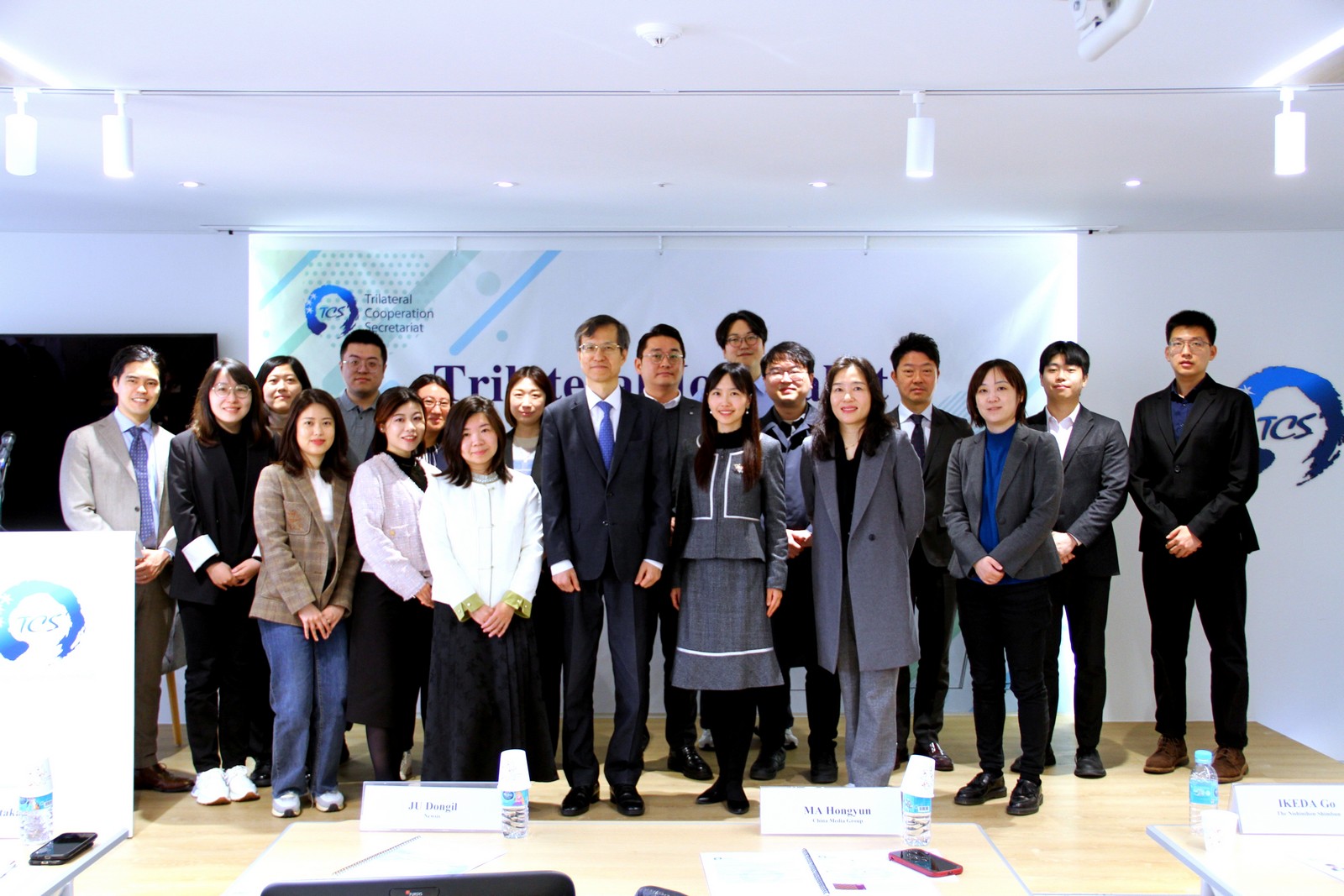
▲Group photo at Opening Ceremony
At the welcome reception, TCS Deputy Secretary-general ZUSHI Shuji welcomed the participants in his remark, underscoring media’s pivotal role in promoting trilateral cooperation.
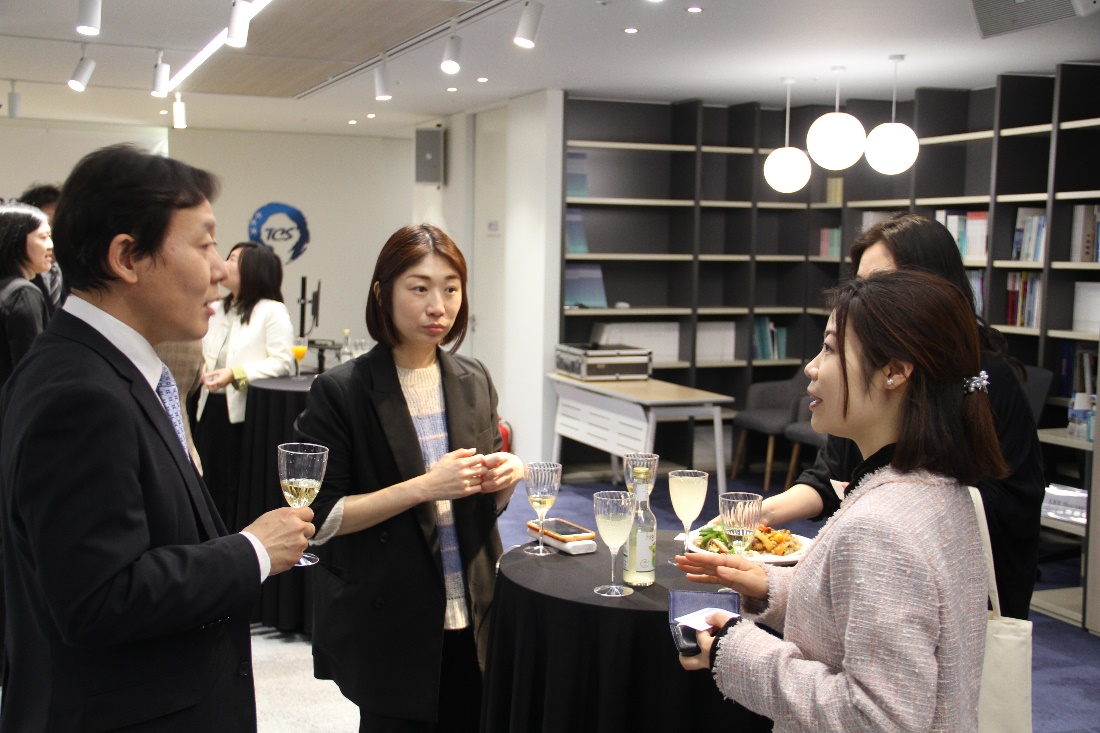
▲Welcome reception
This program got together 6 renowned, reputed lecturers, encompassing a veteran diplomat, prominent scholars from China, Japan, and ROK, to provide lectures with the journalists, sharing their views from each perspective in a straightforward and constructive way on the progress and challenges of the Trilateral Cooperation, mutual perceptions, and economic relations among the three countries. These lectures successfully enhanced mutual understandings of the three countries among the journalists.
[Lecture 1] Ambassador SHIN Jung-seung (Changing International Situation and KCJ cooperation) started his lecture by explaining the current status of the Trilateral Cooperation. On one hand, he highlighted that the Trilateral Cooperation faces the challenges stemmed from the change of international situation, including the U.S.-China strategic competition, Russia-Ukraine war, worsening situation on Korean Peninsula and Taiwan Strait, on the other hand, the difficulties in respective bilateral relations of China, Japan and ROK influences the Trilateral Cooperation. He argued that dialogue among citizens of the three countries to deepen mutual understandings should be promoted as a way to resist nationalism, and opinion leaders such as journalists and academia can greatly influence mutual perceptions among China, Japan and ROK, and also mentioned to the importance of the exchange such as this program in this regard.
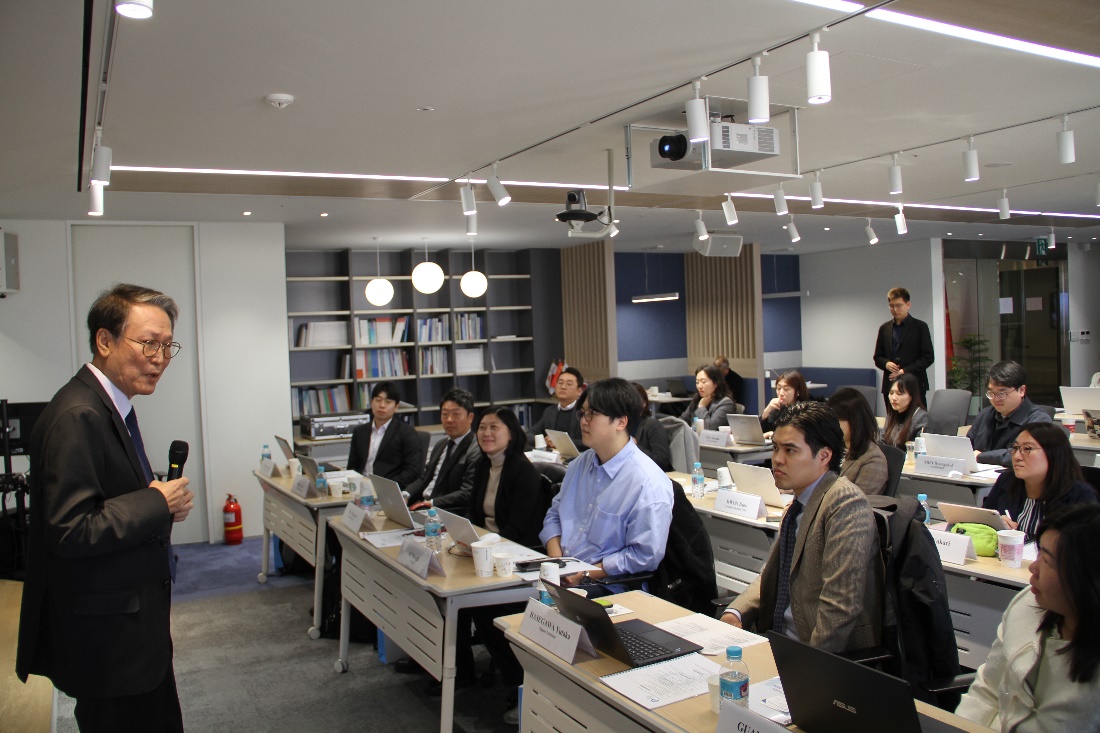
▲ [Lecture 1] Ambassador SHIN Jung-seung (Changing International Situation and KCJ cooperation)
[Lecture 2] Professor ZHU Feng (Evolution and Analysis of Mutual Perceptions among China, Japan, and South Korea) introduced the changing landscape of mutual perceptions between China, Japan and ROK. He declared the Trilateral Cooperation faces difficulties, including the U.S.’s containment toward China. He stated that the three countries’ citizens work diligently, share family-loving culture; it is important for us to respect each other so that we will make our joint efforts and commitments. A pragmatic approach without falling into fanciful concepts is essential, and China, Japan and ROK must not allow the region to be divided, which could destroy our fundamental interests.
[Lecture 3] Professor SONODA Shigeto (CJK’s Mutual Perception) introduced various surveys which are available for understanding mutual perceptions among three countries. He presented his candid views on the current situation in China and pointed out the importance of having a comprehensive data and raw information in promoting mutual understandings. He referred to significant variables, such as inter-generational differences and determinant impact by the differences of information not to trap the oversimplification on mutual perceptions among three countries.
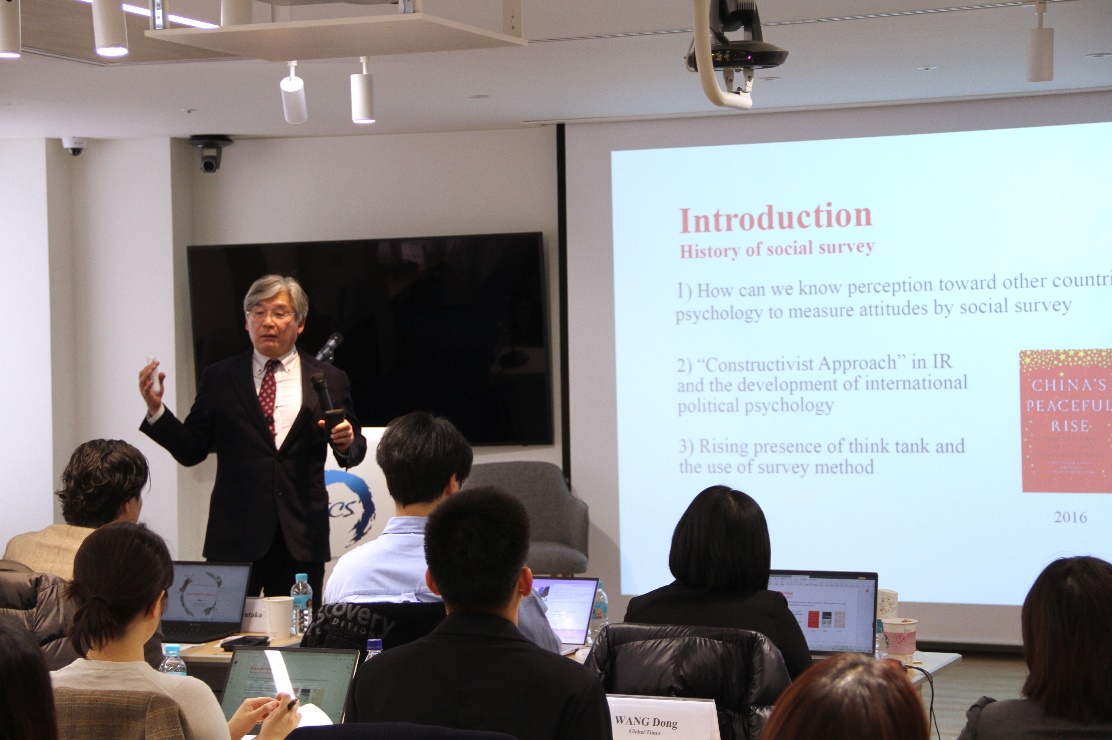
▲ [Lecture 3] Professor SONODA Shigeto (CJK’s Mutual Perception)
[Lecture 4] Professor OH Seung-hee (Mutual Perceptions among China, Japan, and Korea) referred a various of public survey data to explain the three factors influencing mutual perceptions among China, Japan and ROK. The first one is identity conflicts; past conflicts and historical grievances can shape the perceptions of nations towards each other. The second one is media portrayal; the way each portrayed in the media of the three countries can significantly impact on mutual perceptions. The third one is cultural experiences; increased cultural exchanges can help in understanding and appreciating each other's traditions and values.
[Lecture 5] Professor CHEN Wenling (2024 国际经济形势与中日韩经贸关系 (2024 International Economic Situation and Economic & Trade Relations between China, Japan and Republic of Korea) ) analyzed the global economic landscape and discussed economic relations among China, Japan, and ROK. She highlighted the challenges like geopolitical tensions and emphasized the importance of cooperation. Prof. CHEN discussed the U.S.’s approach towards China and advocated for the Trilateral Cooperation among China, Japan and ROK. She recommended establishing trust, coordinating policies, enhancing global value chain positioning, deepening innovation cooperation, strengthening financial collaboration, promoting green transformation, advancing the digital economy, and fostering social and cultural exchange for mutual benefit.
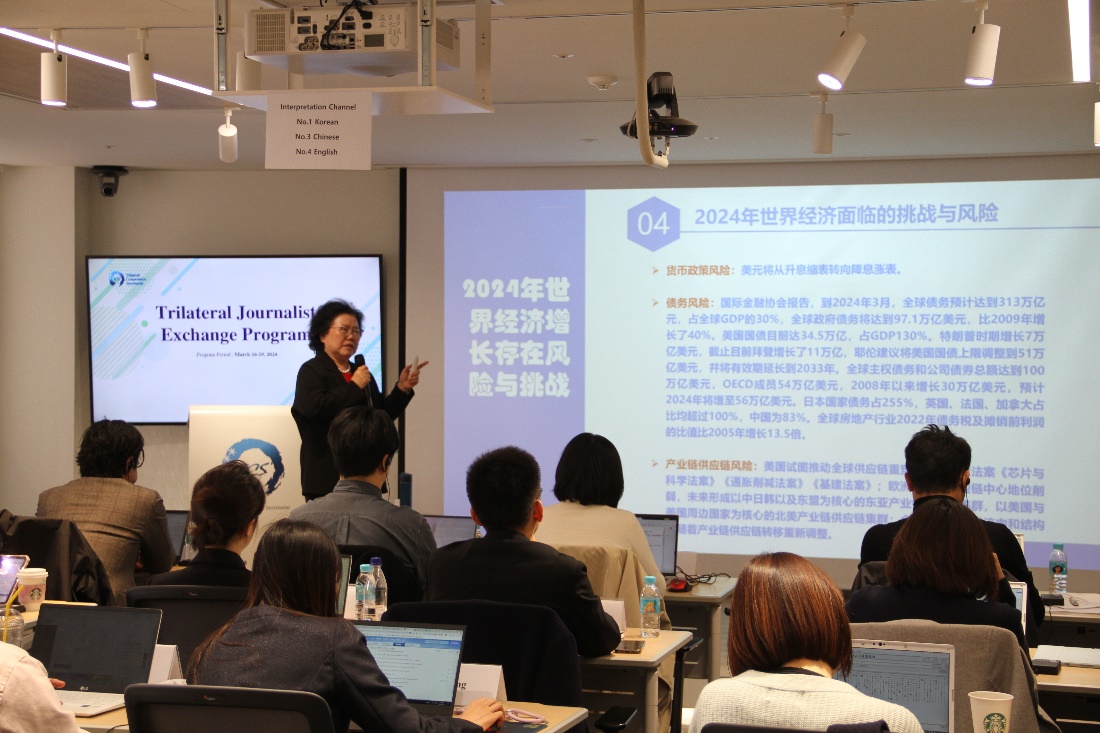
▲ [Lecture 5] Professor CHEN Wenling (2024 国际经济形势与中日韩经贸关系 (2024 International Economic Situation and Economic & Trade Relations between China, Japan and Republic of Korea) )
[Lecture 6] Professor WATANABE Yorizumi (Political Obstacles and Interests Coordination in the Process of Preparation of the Japan-China-ROK FTA) delineated the chronology of the Trilateral FTA, including what had been discussed between 2012 and 2017. After overviewing the current status of China-Japan-ROK cooperation, he concluded that three countries should make a coherent effort to counter protectionism stemming out from unilateral measures taken in the world via rule-based solutions, not via power-based solution.
To compile the six lectures, there was the intensive discussion session. The journalists had the opportunity to make a comment and hold the discussion on moderated by Mr. LEE Ha-won of Chosun Ilbo on morning 18th. He raised questions based on the comments the journalists made regarding the previous lectures. Mr. LEE focused his questions on methods journalists can enhance the Trilateral Cooperation in relevance to nationalism, social media, mutual perceptions, culture exchange, and ultimately the Trilateral Summit.
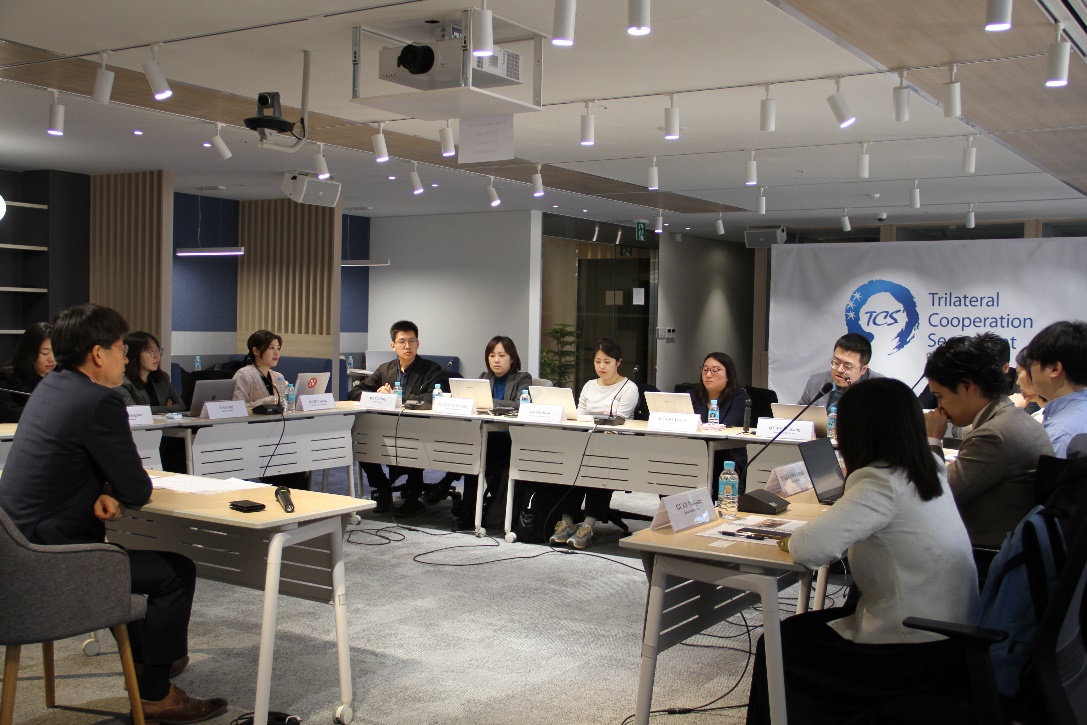
▲Intensive discussion
The journalists exchanged their thoughts on the given topics and actively engaged in the discussion.
The journalists got the chance of visiting Chong Wa Dae on 18th and Kimchi making experience on 19th. Through these activities, the journalists deepened mutual friendship.
SG LEE Hee-sup and DSG YAN Liang had received the interview from some Chinese, Japanese, Korean journalists respectively. And TCS also got ready for the journalist to interview with a renowned scholar and an expert.
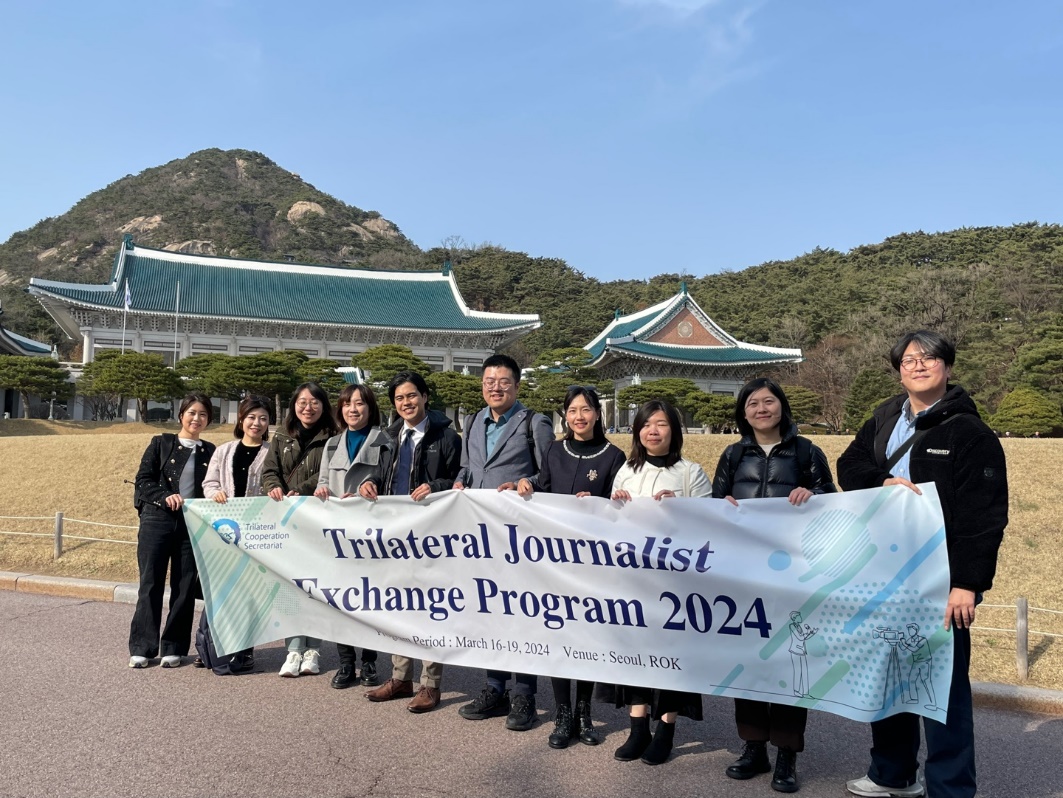
▲Field trip to Cheon Wa Dae
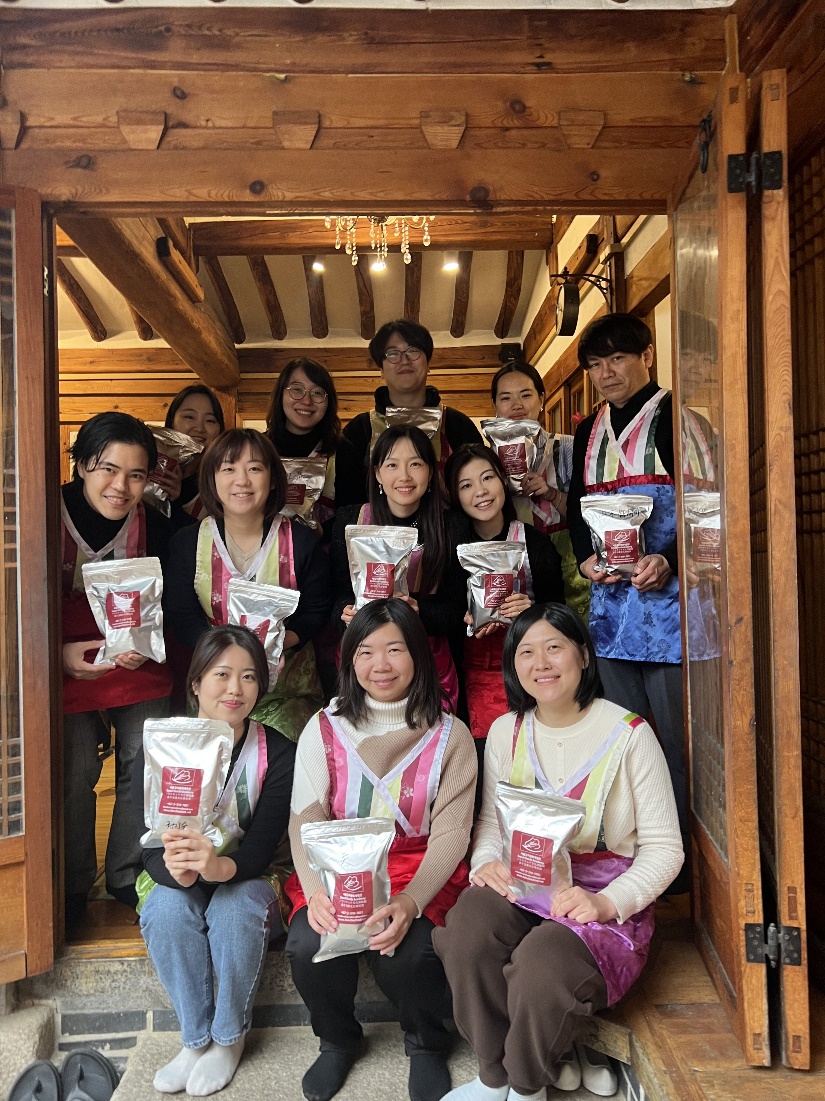
▲Cultural experience
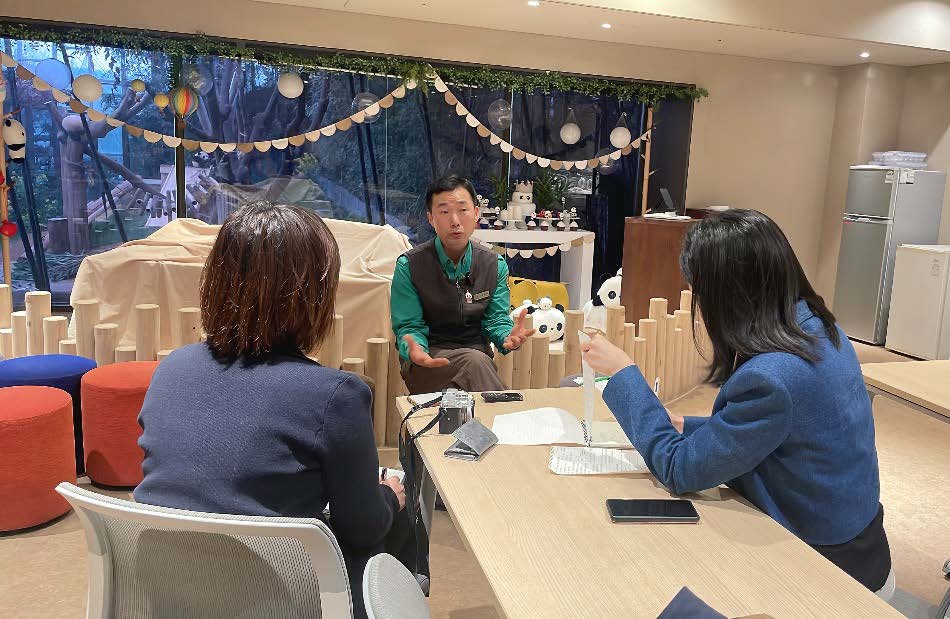
▲Interview opportunities to Mr. KANG Chulwon, Everland zookeeper
TCS Event
Documents
- 15th Trilateral Cultural Ministers' Meeting Kyoto Declaration_JP
- Joint Statement of the 16th Trilateral Cultural Content Industry Forum
- 14th Trilateral Cultural Ministers' Meeting Jeonju Declaration_JP
- Joint Statement of the 15th Trilateral Cultural Content Industry Forum
- 13th Trilateral Cultural Ministers' Meeting Qufu Declaration_JP
- Joint Statement of the 14th Trilateral Cultural Content Industry Forum
- 12th Trilateral Cultural Ministers' Meeting Kitakyushu Declaration_JP
- Joint Statement of the 13th Trilateral Cultural Content Industry Forum

